October 19, 2021
The first CONNEXIONs workshop focusing on ‘’Crime investigation and training through 3D reconstruction’’, an area addressed by the third Pilot Use Case of the project, took place on October 19, 2021. Fifty seven people from several different organisations, including Law Enforcement Agencies (LEAs), Research Centres, Universities, and Industry, participated, contributing to a fruitful discussion. Due to COVID-19 restrictions, the workshop was held online; nevertheless, a full demonstration of the 3D reconstruction capabilities and the Virtual Reality (VR) application of the project was successfully presented.
The overall discussion was coordinated by Christian Rabini from the Munich Police Department. During the first slot, an overview of CONNEXIONs project was provided by the project’s Scientific Manager, Dr. Theodora Tsikrika (CERTH), who presented the main objectives of the project as well as its major achievements.
The second slot was dedicated to the demonstration of the CONNEXIONs 3D Reconstruction and VR Application where Sven Fikenscher with Sebastian Allertseder (both affiliated with the University of Applied Sciences for Public Services in Bavaria – Department of Policing) demonstrated in real time the use of the above technologies. The demonstration was very insightful and participants had the opportunity to understand the use and advantages of the specific tools. As Sebastian Allertseder quoted “The platform is giving the opportunity to create a scenario that totally matches my needs”. This is particularly important since the platform can also be used for training purposes. In particular, the platform encompasses multiple aspects that can assist in training by creating scenarios and assessing the results, thus providing the opportunity to compare to real-life situations and generate best practices. For instance, it is highly important to assess the timeframe for specific analysis to be performed, while the simulations of different placements of evidence in the crime scene can be assessed, given that in the virtual environment it is easier to access the crime scene without destroying any traces. With the completion of the demonstration, participants were very interested not only in the use of the developed solutions, but also in the underlying technologies that were selected for developing these tools.
A panel discussion followed about the challenges of the above technologies on reconstructing and re-visiting crime scenes. The discussions centred around the platform and its user friendliness, even for beginners, as well as around equipment details and suggestions for improvements. During the discussion, the platform tool was characterised as realistic, easy to use, and convenient in the assessment of details, while it was highlighted that it adds value to everyday work, as well as to training purposes.
In the next slot, the added value of using and advancing tools to reconstruct and re-visit crime scenes from an LEA Perspective was explained by our invited speaker, Roland Pusztay from the National Bureau of Investigation, Hungary, who presented the importance of 3D scanners in every-day real-world investigation tasks. He explained the advantages of using 3D scanning by comparing actual photos of the crime scene versus 3D scanning. The results were auspicious since the 3D scanning is considerably time-efficient, easy to use, and provides further investigation benefits.
Finally, two EU sister projects, the SHOTPROS and INFINITY were presented and further explained their aims and objectives providing a more detailed description of their scope and activities. We were more than happy to welcome their participation and we are always keen to share and exchange knowledge, experience, and best practices in common research areas.
Our second workshop will take place in December 2021 with a focus on the first Pilot Use Case regarding “Counter-terrorism security in large scale public events”; more information will be provided soon.


